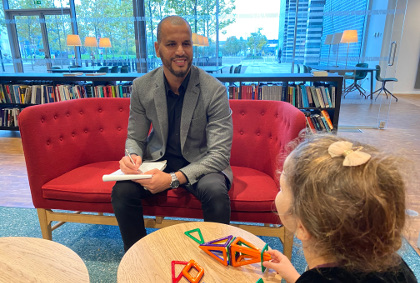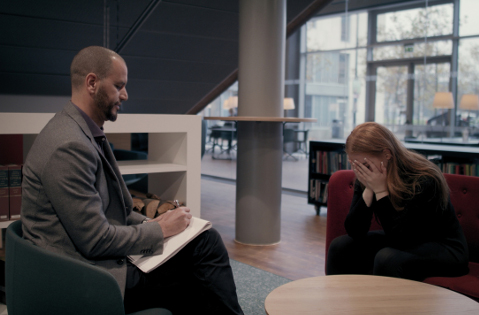Our Treatment Areas
- Home
- Services
Child/Adolescent Therapy
As every child and adolescent is an individual, with their own personality and level of maturity, our counselling and therapy is tailored to the individual’s particular needs to help them explore and understand their struggles. Here are just a few examples of common challenges our clients come to us for:
- Mood and anxiety concerns
- Emotional regulation
- Attachement related concerns
- Self-esteem issues
- Self-confidence
- Depression
- Behavioural problems
- Developing social skills
- Autism Spectrum Disorders

Therapy for Learning Difficulties
We have worked with teachers, local authorities and Special Educational Needs Co-ordinators for a number of years. Individuals who have a learning difficulty may not learn in the same way or as quickly as their peers, and they might find certain aspects of learning, such as the development of basic skills, to be challenging. It is very important, when working with children, to ensure that teachers are onboard and understand the child’s difficulties. Here are some examples of common challenges our clients come to us for:
- Autism Spectrum Disorder (ASD)
- Attention Deficit Hyperactivity Disorder (ADHD)
- Language Processing Disorder
- Lack of concentration and motivation in school
- Non-Verbal Learning Disabilities
- Attention related disorders

Trauma Therapy
From a psychological point of view, trauma is the reaction that a person has when confronted with experiences that are too difficult or overwhelming to deal with in the moment. These are often experiences that are threatening to self or others, and can include physical, sexual and emotional abuse, neglect, bullying, natural disasters, severe illness, etc
Trauma therapy can help you process and begin to move on from past events which are causing you difficulties in your day-to-day life. Individuals who have experienced trauma often struggle with:
Anxiety and low mood
Difficulties trusting others
Fatigue, sleep difficulties or intrusive thoughts
Physical problems, such as headaches or other pains

Behavioural Assessment
Psychotherapist Mohamed Lachouani has worked extensively with children and adolescents presenting with behavioural difficulties and their families. When working with children and adolescents who are struggling with behavioural excesses, it is very important and helpful to get an understanding of where these occur and how they are maintained.
The NMT assessment process examines both past and current experience and functioning; this generates a Functional Brain Map.The NMT “mapping” process helps identify various areas in the brain that appear to have functional or developmental problems; in turn, this helps guide the selection and sequencing of developmentally sensitive interventions.

Family Therapy
A family is an interconnected system. And if one part isn’t working, then the whole system can suffer or start to break down. Family therapy helps to identify the negative interactions and patterns that can emerge within your family, and works to de-escalate them. It then focuses on building positive communication between you, so you can together find new ways to solve issues you are facing. Here are some issues, family therapy can help you with:
- Separation and divorce
- Child behavioural difficulties
- Difficulties during adolescence
- Parenting challenges
- Illness and bereavement
- Grow coping skills to better handle problems that arise
- Recognise each other’s needs and viewpoint

Anxiety
At the Multiculttural Psychotherapy clinic, there are a available for those struggling with anxiety. Anxiety can be experienced alone, or as part of a wider problem related to life upheavals or difficult experiences. Here are some issues, therapy can help you with:
- Feelings of hopelessness and helplessness
- Depressed mood (feeling sad or empty)
- Loss of interest or pleasure in things you used to enjoy
- Weight loss or gain
- Feeling worthless or guilty
- Difficulties making decisions
- Feeling tired or slow, or feeling restless
- Thinking about suicide

Autism
At our clinic, we offer an autism diagnostic assessment service for parents who believe that their child may be autistic.
Autism spectrum disorder (ASD) is a developmental disability that affects social interaction, communication, interests and behaviour.
Symptoms of ASD are often apparent early in a child’s life. Symptoms exist on a continuum, with milder idiosyncrasies existing alongside far more impairing presentations of the condition.
A standardised assessment enables us to determine whether a child meets criteria for ASD or a social communication disorder.

ADHD
At Multicultural Psychotherapy Clinic, we offer an ADHD assessment service for any child experiencing difficulties at home or at school.
Children who have Attention Deficit Hyperactivity Disorder (ADHD) may experience inattentiveness, hyperactivity and impulsiveness. They also are more likely to be diagnosed with dyslexia, dyspraxia, and anxiety.
This can mean they struggle to concentrate at school and underperform despite being intelligent. Symptoms usually arise in childhood, and are often noticeable before the age of six.

Depression
People with depression are often extremely self-critical, worrying about things they feel they have done wrong, or that they — themselves — are wrong in some fundamental way. The pattern of depression varies quite a bit, with some experiencing symptoms during isolated periods of time, while others have many or most of the symptoms for months or even years.
If the symptoms are significant enough to cause distress or loss of ability to work, live, or play, then it is time to seek treatment. These concerns are very treatable, with research suggesting psychotherapy as the first choice of treatment. The sooner a person seeks treatment, the better. as the patterns of thought and behavior become more entrenched with time, and require longer treatment.


